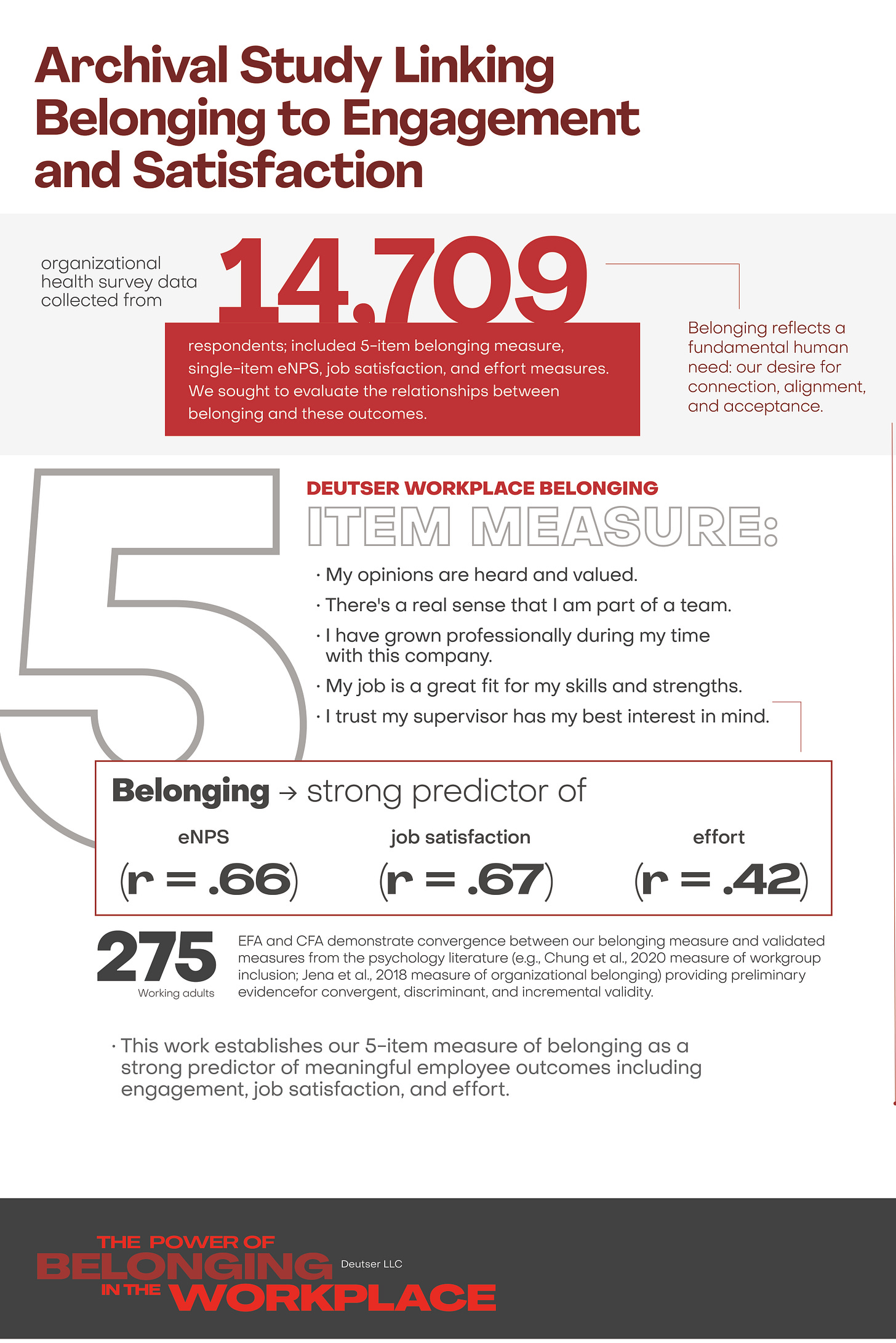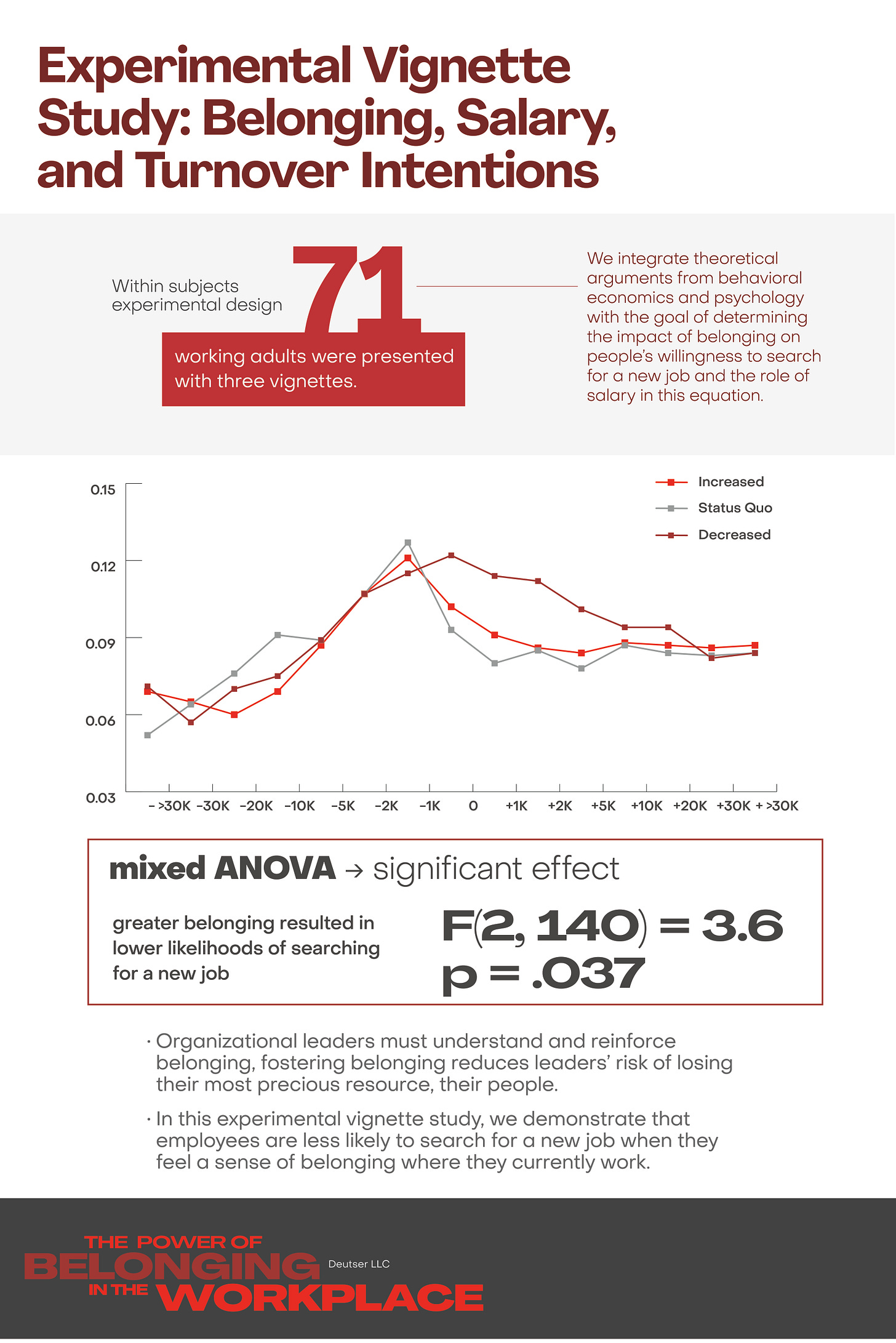Our Research on the Power of Belonging in the Workplace
We all want to be a part of something greater than ourselves.
Belonging is the fundamental human need that drives us to connect with others and align with various groups. We all want to be a part of something greater than ourselves. We tether ourselves to causes, groups, and organizations that align with our values and help us create meaning in our lives. These affiliative tendencies show up throughout our lives, so it is no surprise that they impact our ability to perform and our well-being in the workplace. Next week, my new book, Belonging Rules, will be released. As I’ve been reflecting on the launch, I’ve also been reflecting on the findings of the research that formed the foundation of the book itself and the five rules for leaders that we find to drive lasting, systemic change around belonging.
We conducted multiple studies to explore the power of belonging in the workplace. In our first study, we analyzed archival survey data, gathered from nearly 15,000 employees across industries, sectors, and roles. We found that belonging is a significant and strong predictor of employee engagement, job satisfaction, and employee effort. We then went on to validate our 5-item measure of belonging, conducting a follow-up study with a separate employee sample and linking belonging to additional organizational outcomes like burnout, the Positivity QuotientTM, and turnover intentions. Our stream of research emphasizes the value of belonging for organizations and leaders – it’s not a nice to have, it’s a must have and must cultivate.
To complement these findings and to extend the case for organizational belonging even further, we conducted an experimental vignette study wherein we quantified the value of belonging to employees in dollar amounts and examined how the presence of a culture of belonging at their workplace affects employees' likelihood to search for a new job.
Our findings support the business case for fostering belonging in the workplace and underscore the importance of data-driven initiatives that enhance the experience of belonging in diverse groups. Employees who feel a strong sense of belonging are more likely to be satisfied with their jobs, put forth greater effort, and be less likely to consider leaving the organization. They’ll even forego an offer with an increase in salary in favor of staying with a company that values belonging and instills a belonging culture.
Organizational leaders can leverage and reinforce belonging during times of upheaval to create cohesion and to steady a productive, motivated workforce. Our research offers a comprehensive look at the value belonging brings in the workplace and its powerful implications. As organizations become increasingly diverse and globally interconnected, leaders must address business, cultural, and societal demands. Creating organizational cultures where everyone can thrive, share their perspectives, engage respectfully, bring their authentic selves to work, and feel connected to their colleagues is an imperative for leaders.
If you’re interested in learning more about this research, or referencing the timely and evidence-based frameworks that arose in light of it, Belonging Rules is available for pre-order here: https://bit.ly/3VYo6Nr.
Additionally, you can download our white paper, “The Power of Belonging in the Workplace,” directly by checking out www.deutser.com.



